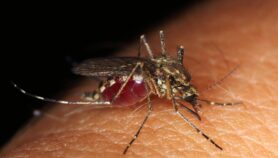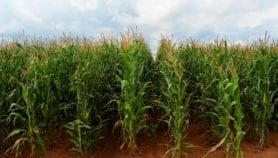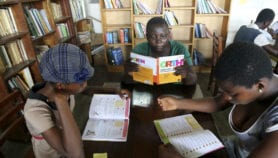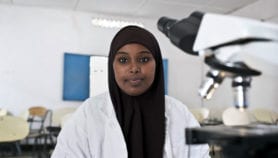26/11/19
Africa’s 2020 ‘top engineering innovators’ shortlisted

By: Francis Kokutse
Send to a friend
The details you provide on this page will not be used to send unsolicited email, and will not be sold to a 3rd party. See privacy policy.
[ACCRA] A live facial recognition technology, animal feed made from invasive water hyacinth and the use of bamboo for bicycles are some of the innovations that have been shortlisted for the 2020 Africa Prize for Engineering Innovation.
The Royal Academy of Engineering, which runs the prize, announced the 2020 shortlists made up of 16 innovators including six women last week (20 November). They are from Ghana, Kenya, Malawi, Nigeria, South Africa and Uganda.
“Innovations supported by the Africa Prize for Engineering Innovation have an impact across all sectors, addressing problems such as climate change, food security, utilities infrastructure, access to transport and education, financial and disability inclusion, and child and maternal health,” says Meredith Ettridge, head of sustainable development of the Royal Academy of Engineering.
In the first five years of the prize, 72 innovative businesses have been supported, and experts have provided over 1,850 hours free consultations and training– equating to about £900,000 (about US$1.6 million) for the entrepreneurs, adds the Royal Academy of Engineering.
“Innovations supported by the Africa Prize for Engineering Innovation have an impact across all sectors.”
Meeredith Ettridge, Royal Academy of Engineering
Ettridge explains that the prize could impact over three million lives in the next five years and have already created more than 1,500 jobs.
Applications were received from 22 African countries including Ghana, Kenya, Nigeria, South Africa and Uganda and for the first time Burundi, Cote D’Ivoire, Equatorial Guinea, Somalia and the Gambia. The organisers do not disclose the exact number of applications, but they received more applications this year than last year.
According to the Royal Academy of Engineering, the shortlisted entrepreneurs will receive resources including training and mentoring over the next eight months. Four finalists will then be invited to pitch their innovations to judges and business experts. The overall winner will be awarded US$32,000 and the three runners-up receiving about US$13,000 each.
Jack Oyugi, a Kenyan innovator, says that his nomination was not a surprise but a reward to the effort he and his team have put into solving African and global challenges. “This is a competitive prize and to make it to the finals means a lot in terms of the networks and partnership I will get in this journey,” he says.
Oyugi, whose innovation, Aquaprotein, is an affordable protein supplement for animal feed made from invasive water hyacinth, says that the motivation for his work was due to a cousin who got trapped in water hyacinth weed the whole night while fishing in 2016.
Oyugi adds that another incident that motivated his innovation was when he faced a shortage of animal feed which resulted in reduced farm productivity and loss of some animals.
“Today, the fishermen can [harvest] water hyacinth for us beside fish and farmers get affordable feeds while the cows are happy feeding on organic feed,” he says. “Water hyacinth is considered a dangerous weed in the world, which I think is not true. With increase in world population and decrease in arable lands, there is a need to find alternative ways of providing sustainable food for human and our animals.”
Another nominee, Charlette N’Guessan from Ghana, whose innovation is a system that uses live facial recognition technology to verify identities and prevent financial and online identity fraud, says that her nomination shows that “Africa has talented young entrepreneurs who use advanced technologies to provide innovative solutions and to make great impact”.
N’Guessan tells SciDev.Net that she decided to work on this innovation because the continent recently is recording various fraudulent practices on its financial landscape.Another nominee from Ghana, Bernice Dapaah, who is being recognised for her work to use bamboo for bicycles, explains that she aims to boost transportation in rural Africa.
Dapaah said her work could impact on the continent because she believes her innovation “will on a broader scale improve access to cheap mode of mobility in Africa and lift the poor to a higher social stratum by connecting them to economic opportunities and other life-changing social services”.
Etteridge tells SciDev.Net, “The Africa Prize works to turn engineers into successful entrepreneurs, supporting the Africans changing Africa, with innovations that address crucial problems in their communities, and it is the only award focused solely on engineering on the continent.”
This piece was produced by SciDev.Net’s Sub-Saharan Africa English desk.













